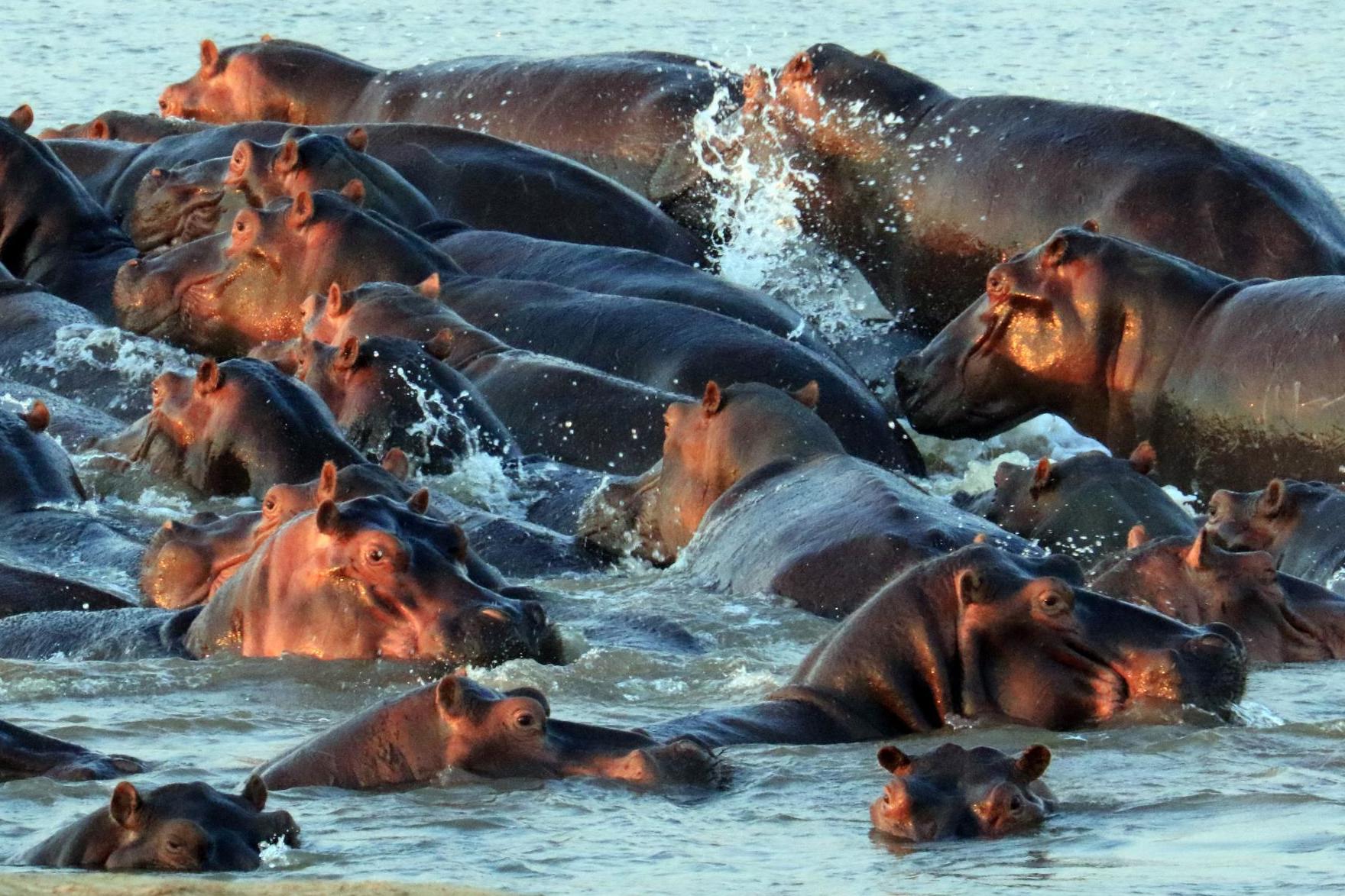“See that hyena fast asleep over there, looking like a log?” our safari guide Deb Tittle whispers, pointing to a lone creature some 100 metres away on the open plain. “Let’s sneak up on him!”
Bemused impala, puku, pelicans and giraffe all look on as our armed ranger leads the way. We crouch down in single file, silently following Deb’s every move.
This isn’t something you’d normally do on safari, but then Deb isn’t your normal guide. A British woman in a staunchly male-dominated profession, she’s lived and worked in Zambia’s South Luangwa National Park for over 20 years.
Walking safaris were born here in the 1960s, pioneered by renowned conservationist Norman Carr. Following in his tradition, tracking big game and getting up close and personal with wildlife deep in the bush is Deb’s passion. “I walk in a proactive way – let’s get in there, let’s track these wild animals…” she explains. “It’s not your usual nature walk.”
Safety is paramount, however. Lone hyenas pose little threat to people and Deb has already scanned the surroundings for dangerous predators – it’s best not to bump into lions or leopards while you’re busy stalking hyena.
With his back to us, our “prey” is oblivious to our presence. When the spotted hyena twitches, raises his head and flicks off the flies, we freeze. Then we tiptoe nearer as he flops back to snooze in the sun. Eventually, we’re sitting about four metres away just watching him doze, exhilarated at how close we’ve come. He twitches again, arching his head backwards. And then he sees us. Jumping up, he twists around almost in mid-air and stares in our direction, looking decidedly baffled. We freeze again until he slouches away with that guilty gait that hyenas have.
Spanning 9,050 sq km, South Luangwa is home to over 60 mammal species including four of the Big Five (elephants, leopards, lions and buffalo – rhinos are absent). The dynamic Luangwa river dominates its eastern border. Constantly changing course, the riverbanks crumble into the water as it twists and turns, shrinking and swelling with the seasons and leaving lagoons and oxbow lakes in its wake.
Deb settled here in her early thirties after driving overland trucks across Africa. She learnt her craft as a walking guide working with some of the best in Zambia, including Derek Shenton and Robin Pope (one of Carr’s protégés) and has now joined their ranks. Having trained over 60 local guides, she became lead examiner for guiding qualifications. But she wanted more.
“My dream was always to live with big animals in the bush. Now it’s my reality,” she explains as we sip sundowners with her partner Jane Addey in their new walking-only camp, Mapazi, that opened in the autumn. In the remote northern corner of the park, it sleeps just four guests. The tented rooms are simple but comfortable with sturdy wooden furniture, solar power and separate private bathrooms. An intimate, no-frills camp, it has everything you might need – hearty meals, hot showers, cold G&Ts – but nothing to detract from its beautiful bush vibe.
Setting up camp wasn’t easy. Challenges included a five-week delay in getting roads graded by the park; 18-ton delivery trucks getting stuck in sand rivers; supplies being dumped by drivers miles from camp; and a 7-metre-high frame for water tanks getting wrecked en route. “It’s been a rollercoaster. We had half the time we’d planned to get things ready, but we still had to have flushing toilets for our first guests.” Deb smiles: we are those first guests.
And it’s vital that guests come. Since Zebra Plains, a nearby camp, closed four years ago, there’s been no tourism here and poaching has increased unhindered. But with Mapazi open, more eyes on the ground from visitors, staff and rangers means more poachers are deterred. And when the camp closes to guests during the rains from November to May, anti-poaching patrols will stay. “This area’s been neglected because it’s been so hard to access. I want to protect it and show how special it is.”
It’s certainly special. Unlike being on a game drive, senses come alive when you walk silently and slowly through the bush (it’s no route march), smelling for dung or kills, listening for tell-tale alarm calls, looking for tracks or moving shadows. We follow fresh leopard prints through shady mopane woodland, only to be diverted because elephants with babies are meandering like ghosts among the trees. We watch rare mink-coloured roan antelopes strolling to the river, their extraordinary facial markings resembling burglars’ balaclavas. And we wander past hippos jam-packed into what’s left of the Luangwa in the dry season as they rise out of the water like a giant Mexican wave of purplish blubber.
On our last evening, we stroll along the Luangwa near Mapazi. Elephants are splashing and slurping in the water and all around them, chirruping carmine bee-eaters the colour of rosé wine fly from their nests. It’s an utterly beautiful scene, as clouds of pink plumage contrast vividly with the greys and golds of the elephants in the sand at sunset.
“I just wanted to live with these wild animals and have a little place in the bush,” Deb smiles. “This is it. And all this is my back garden.”
Travel essentials
Getting there
Safari Consultants offers tailor-made trips to Zambia. An itinerary including two nights at Lion Camp, three nights at Mapazi and two nights at Tafika costs from £4,750pp. This includes international economy flights with Ethiopian Airlines, internal flights, road transfers, full board accommodation with house drinks, safari activities and park fees. Note that Mapazi is best suited to people who have travelled on safari before.
Subscribe to Independent Premium to bookmark this article
Want to bookmark your favourite articles and stories to read or reference later? Start your Independent Premium subscription today.


Join our commenting forum
Join thought-provoking conversations, follow other Independent readers and see their replies